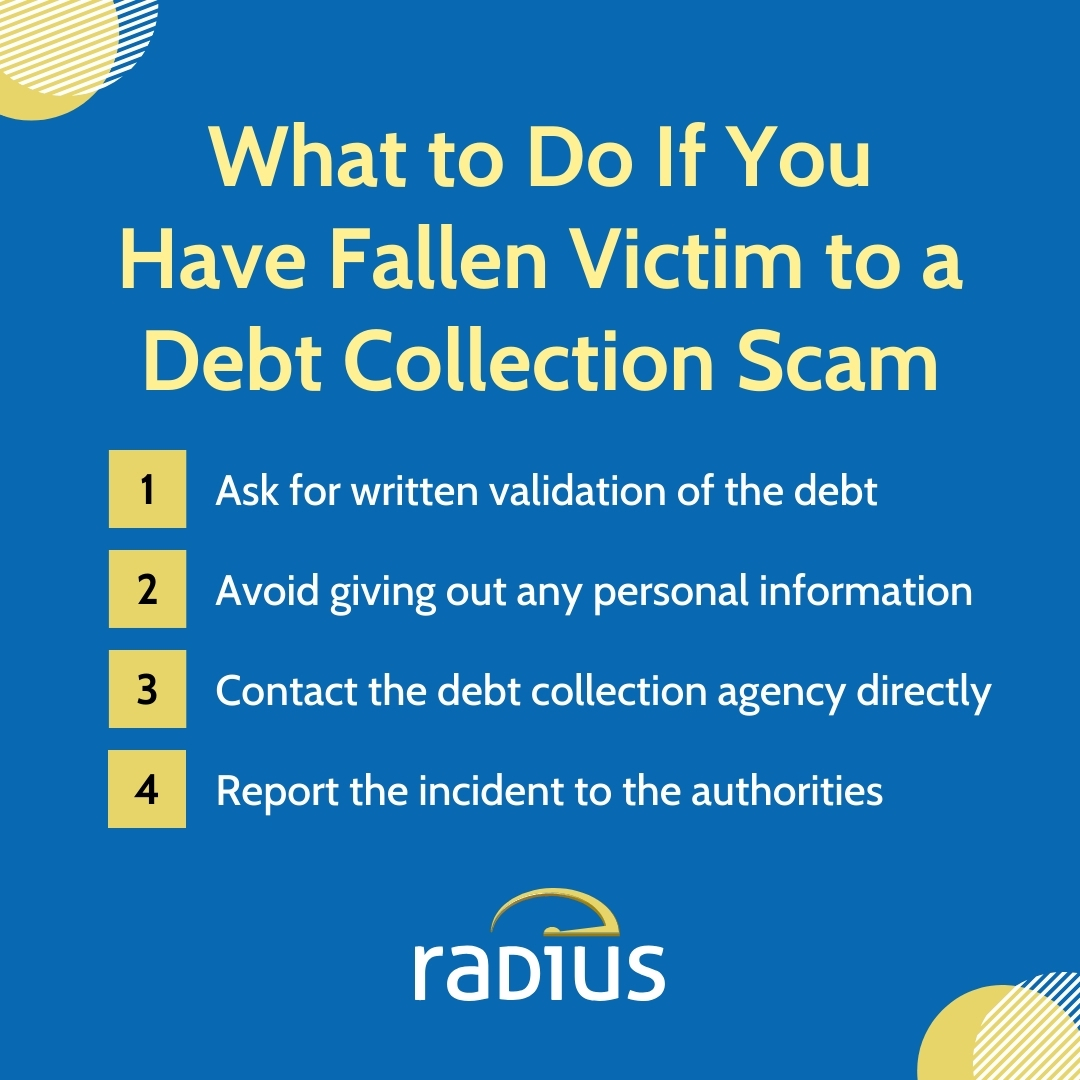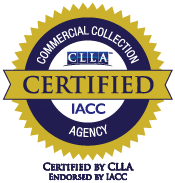Understanding and Avoiding Debt Collection Scams
Financial scams are rampant crimes that affect U.S. adults. About 15% say at least one person in their household has been a victim. This makes financial scams one of the four most common crimes impacting American households.
Many debt collection attempts are real, but some people take advantage of the fear that debtors feel when they learn they owe money. These scams can take place over the phone, through email or text messages, or even through physical mail. With scams getting more and more sophisticated, they’re not always easy to spot.
As a trusted debt collection agency, Radius Global Solutions can help you learn how to spot debt collection scams. We will explain common types of scams and what to do if you think you are dealing with a scammer.

How to Spot Debt Collection Scams
Recognizing the signs of a scam can prevent you from becoming a victim. Here are several warning signs that can help you spot a potential scam:
- Unsolicited calls and messages
- Lack of written verification
- Use of pressure tactics and threats
- Request for unusual payment methods like wire transfers and gift cards
- Lack of detailed information about the debt
- Inconsistent or generic company information
- Demands for immediate payment
- No prior contact or knowledge of debt
- Incorrect or outdated personal information
- Refusal to provide contact information
Real debt collectors follow legal and ethical rules. They do not use threats or pressure tactics. If you feel threatened, stop contact with the individual you’re speaking to right away.
Common Types of Debt Collection Scams
Debt collection scams can take many forms. Scammers aim to trick people and businesses into paying money they do not owe. Understanding these common types can help you recognize and avoid them.
Here are some prevalent debt collection scams:
- One common type is the phantom debt collector scam, where the scammer claims you owe a debt that doesn’t exist.
- Another prevalent scam is the impersonation of legitimate organizations or government agencies.
- Scammers may also send phishing emails that appear to be from real debt collection agencies or financial institutions.
- Some scammers demand an upfront fee to settle or negotiate a debt on your behalf.
- Another common debt collection scam happens when fraudsters try to collect old debts that are no longer legal to collect.
With so many scams out there, how should you respond if you suspect someone is targeting you?
What to Do If You Suspect You Have Fallen Victim to a Scam
If you think you’ve been targeted by a debt collection scam, take immediate action to protect yourself. Here are some steps you can take if you’re unsure whether you truly owe a debt:
- Ask for written validation of the debt and verify the debt with the original creditor.
- Avoid giving out personal information, such as your Social Security number, bank account details, or credit card information.
- Contact the creditor or debt collection agency directly using contact information from your records or their official website.
- Report it to the Federal Trade Commission (FTC), the Consumer Financial Protection Bureau (CFPB), and your state attorney general.
If a scammer contacts you by phone, text, email, or online chat, stop all contact right away if you see any red flags. Block their phone number or email if you can see it. Their threats may get worse if you stop responding.
It may seem daunting to report a scam to the authorities, but doing so can help protect future potential victims. Taking these steps will help you avoid the stress of sending money to a scammer.
Gain The Right Technologies with Customer Service Experts
Even if you feel confident that you’ve never fallen victim to a scam before, it’s crucial to stay vigilant. Scammers are constantly developing new schemes and tactics to trick unsuspecting individuals and businesses.
Staying informed about common debt collection scams is your first line of defense. Understanding the tactics used by scammers will make them easier to spot.
If you need professional debt recovery services, consider partnering with a reputable and experienced provider like Radius Global Solutions. With our team, you can ensure you’re dealing with legitimate debt collection practices.



